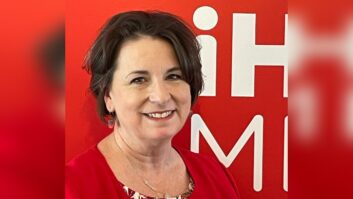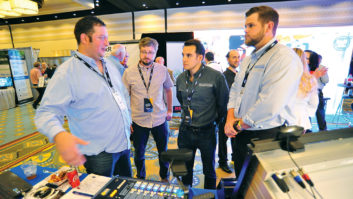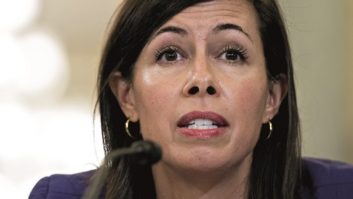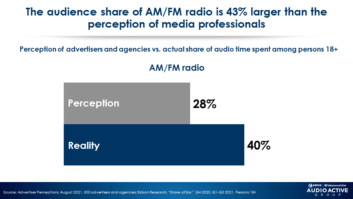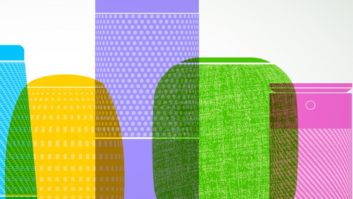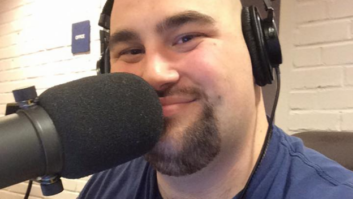LONDON — The growing podcast market around the world was a key focus of this year’s Next Radio event in London.

Next Radio conference welcomed guests to London’s Royal Institution.
Credit: Next Radio
Opening the conference, Megan Lazovick, director of research from Edison Research presented new data showing 60 percent of Americans — around 168 million people — are now familiar with the term “podcast,” up from 37 percent 10 years ago.
Its “share of ear” findings revealed that listening is split around 75 percent music to 25 percent speech; and of that time spent listening to speech, around 11 percent was now to podcasts. However, this was still dwarfed by traditional AM/FM radio, at 69 percent.

The research found that the rise of smart speakers means people are listening to audio differently. “For the first time in years, we’re seeing people gather around the radio,” said Lazovick, “almost like it’s the 1930s.”
Other contributors also reflected this theme. Writer, speaker and consultant James Cridland advised stations to “get your live radio on as many loudspeakers, and your content on as many headphones as possible.”
Michael Hill, managing director of Radioplayer, talked about his organization’s work to further develop its skill for the Amazon Alexa device, which now allows users to ask what’s playing on a station. In the eight countries in which it now operates, Radioplayer has also added integration with Sonos multiroom systems, Hill announced.

Nicky Birch, founder of Rosina Sound, describes producing original content for smart speakers.
Credit: Next Radio
Nicky Birch, founder of the United Kingdom’s Rosina Sound described her latest work producing original content for smart speakers — an interactive program made with BBC Research and Development. The story is a comedy science fiction drama with four characters, one of which is the device user; a series of questions is asked and the responses determine how the story develops. “The Inspection Chamber” will be released on the BBC’s Taster website before the end of the year.
Holland’s BNR Nieuwsradio demonstrated their use of real-time data — the station’s mobile app reports when listeners tune out, or increase/decrease volume. This can be linked to the output, showing producers the impact of specific topics or features. A partnership with Google allows BNR to categorize its output, with software transcribing and captioning audio, in turn allowing listeners to personalize content.


